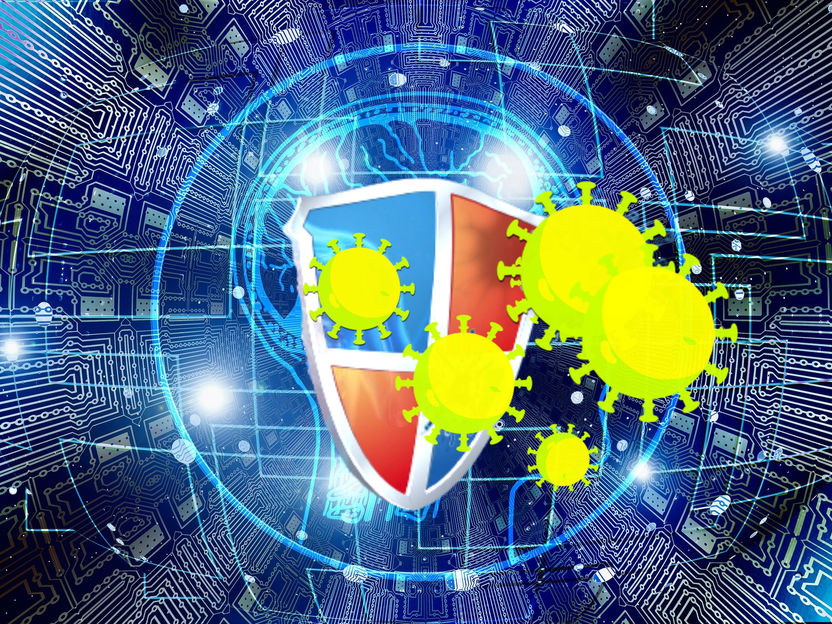Exploiting deep learning to develop sustainable COVID-19 inhibitors
Collaboration Eisbach Bio GmbH & Technische Universität Kaiserslautern
Advertisement
Eisbach Bio GmbH and the team of Prof. Dr.-Ing. Naim Bajcinca from the Technische Universität Kaiserlautern (TUK) announce a collaboration where they will use deep learning to track and trace arising mutations in the genome of SARS-CoV-2 and develop sustainable small molecule inhibitors that will target the virus for the long-term.

Symbolic image
pixabay.com
The project titled AI-based Mutation Prediction and Relevant Protein Inhibitor Development in SARS-CoV-2 (AIMPID) is focused on predicting mutations in the SARS-CoV-2 genome and developing small inhibitor molecules which target the virulent protein products of predicted mutations to block their activities. Being an RNA virus, SARS-CoV-2 is prone to mutations in its genome. These mutations will likely render current vaccines and drugs less effective over time. The tracing of mutation patterns in the viral genome will allow for the identification of the least mutable regions. This knowledge will help the collaborating teams to design more enduring, sustainable inhibitor molecules, which will help controlling the global spread of pandemic. The main tasks of the project include the prediction of the mutation rate, of the specific mutated residues among all viral proteins and the development of small inhibitor molecules against one or more specific target proteins translated from the virus’ mutated RNA sequences. One objective of the collaboration is to generate a small molecule inhibitor of a critical SARS-CoV-2 protein that has the potential to inhibit current and future variants of the SARS-CoV-2 virus.
The project is partially financed by the ZIM Programme of the Federal Ministry for Economic Affairs and Energy. It is a collaboration between Eisbach’s R&D department and the Chair of Mechatronics in Mechanical and Automotive Engineering of the TUK.
The development of antiviral drugs based on deep learning shall complete Eisbach’s other COVID-19 assets and will run in parallel to already developed small molecule inhibitors.
Other news from the department research and development
Most read news
More news from our other portals
Something is happening in the life science industry ...
This is what true pioneering spirit looks like: Plenty of innovative start-ups are bringing fresh ideas, lifeblood and entrepreneurial spirit to change tomorrow's world for the better. Immerse yourself in the world of these young companies and take the opportunity to get in touch with the founders.


















































